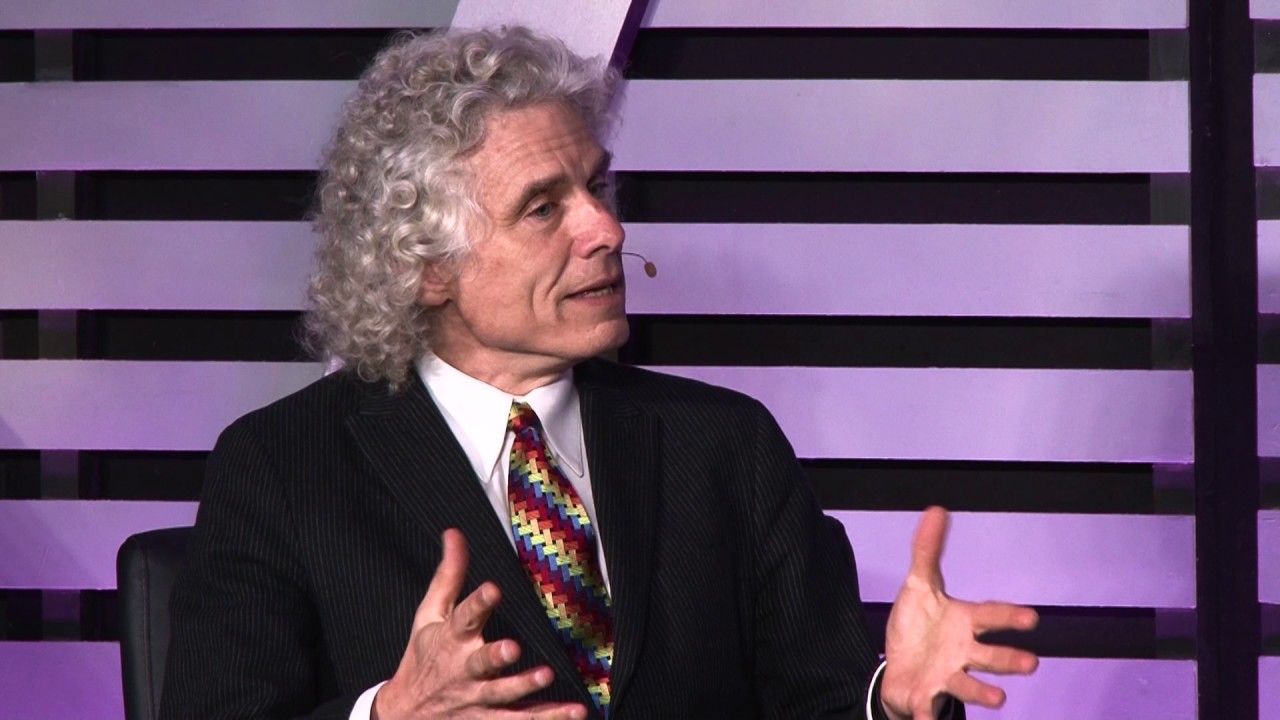Mercatus Center
What does Steven Pinker think about Noam Chomsky’s theory of universal grammar?
Full conversation and transcript here: https://medium.com/conversations-with-tyler/steven-pinker-language-instinct-evolutionary-psychology-darwin-chomsky-linguistics-b792d7cd2a05#.fycirjycw
Don’t forget to subscribe to the Conversations with Tyler Podcast via iTunes, Soundcloud or your favorite podcast app.
iTunes: https://itunes.apple.com/us/podcast/conversations-with-tyler/id983795625?mt=2
Soundcloud: https://soundcloud.com/conversationswithtyler
http://www.mercatus.org/conversations
Source




"It was never empirically tested" Lol wrong:
https://www.nature.com/articles/nn1077
Funny how these bozo linguist types don't even know any other languages.
Funny that Marvin Minsky – a mathematician and cognitive neuroscientist, who wrote the first universal Turing machine and did foundational work in neural networks – has a criticism that is exactly the opposite: his opinion is that Chomsky is too precise, and is studying what he considers to be pseudo-mathematical relationships at such a small scale that they are conceptual minutiae, Minsky expressing a preference for looking for patterns a few more levels up, such as at the level of concept generation as associated with activities/goals.
Pinker here represents a good critical target of Minsky's argument as well – Pinker has correlated data and demarcated patterns, much like psychologists have done with "personality" theory, locating supposed traits by their assumed expression as contained in lexical data. If Minsky was correct, people like Pinker are picking up descriptive patterns of mechanism at a fine level of detail, but ignoring the generative mechanisms that are actually useful to describe, and explanatory.
This is where Chomsky was heading, and what Pinker never seems to discuss – what is the generative mechanism for the patters found in data? So far the data-driven approach just seems to confirm the existence of language, and is not clearly leading to a place where the generation of language is understood.
great
Pinker's account of UG is completely wrong, imo. I think he's missed the main idea completely.
Chomsky's most important point is, there is no language learning, there is only language growth. And he compares it to embryological development.
Recursion is not really the main idea.
Pinker is right – Chomsky was in fact wrong. Significantly, fundamental flaws in Chomsky's theory were pointed out early on, eg by Quine. Yet Chomsky continued to hog the field of linguistics. What happened was that a boom in research funding to explore TGG made it academically and financially attractive to linguists. Only the loudest voices were heard and linguists continued to bury their heads in the sand. So the linguistic academic field was to blame as much and even more than Chomsky.
So he acknowledges Universal Grammar exists but throws Chomsky under the bus anyway. Hm.
Noam Chomsky is wicked smart.
Lolita express anyone else?
He is one funny tie away from looking literally like a comic supervillain